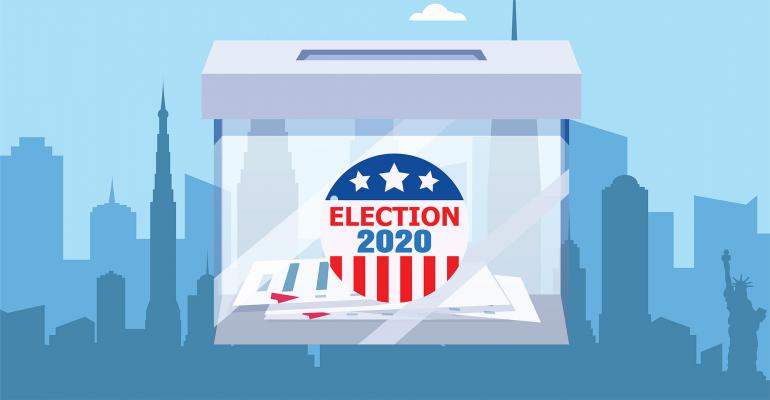America has voted. But close margins in battleground states where millions of ballots are still being counted leave the outcome of both the presidential race and control of the Senate unclear for the next few days. The Democratic Party, meanwhile, retained control of the House of Representatives.
But that’s not all that was at stake for the commercial real estate industry. There were more than a dozen ballot measures in various states that that carried implications for real estate taxation and development.
In California three ballot measures—Prop 15, Prop 19 and Prop 21—were of concern.
The most hotly-watched of those was Prop 15, which if passed, would institute a split-roll system of property taxes. That would mean commercial property would be assessed annually and taxes calculated based on the building’s current market rate. Currently, all property taxes in California are calculated based on their previous purchase price.
As of 9:00 AM Wednesday morning, the vote was too close to call.
With 71.5 percent of precincts reporting there were 5,987,489 against the proposition and 5,588,052 votes for the measure, it might take a few days to know the outcome.
Prop 19 concerns the tax treatment of certain property transfers. That vote was also too close to call this morning with 5,844,548 votes in support and 5,495,434 against.
Lastly, Prop 21, which would have strengthened rent control laws within the state, was defeated. With 71.5 percent of precincts reporting, nearly 60 percent of voters had voted against the measure.
Elsewhere, in Colorado, Amendment B, which repeals the so-called Gallagher Amendment, passed by a margin of 58 percent to 43 percent. The amendment sets residential and non-residential property tax assessment rates in the state constitution. It would also allow the Colorado State Legislature to “freeze property tax assessment rates at the current rates (7.15 percent for residential property and 29 percent for non-residential property).”
In Louisiana, Amendment 5 was defeated by a margin of 63 percent to 37 percent. It would have allowed “new or expanding manufacturing establishments and allowing the manufacturing establishments to make payments to the taxing authority instead of paying property taxes.”
In Nebraska, Amendment 2 passed by a vote of 61 percent to 38 percent. The amendment increases “the repayment period for tax increment financing from 15 to 20 years for areas where more than one-half of properties are designated as extremely blighted.”
Lastly, in Utah, Amendment G was too close to call. It would allow the Utah State Legislature “to use revenue from income taxes and intangible property taxes to support children and individuals with a disability.”
Besides the property tax votes, there were a number of ballot measures to legalize recreational or medical marijuana, which would be a boon for the ever-growing arena of marijuana real estate.
All of those measures were approved by voters. They included Prop 207 in Arizona (legalization of recreational marijuana), Ballot Measure 1 in Mississippi (legalization of medical marijuana), CI-118 and I-190 in Montana (legalization of recreational marijuana), Public Question 1 in New Jersey (legalization of recreational marijuana) and Constitutional Amendment A and Initiated Measure 26 in South Dakota (legalization of both medical and recreational marijuana).

